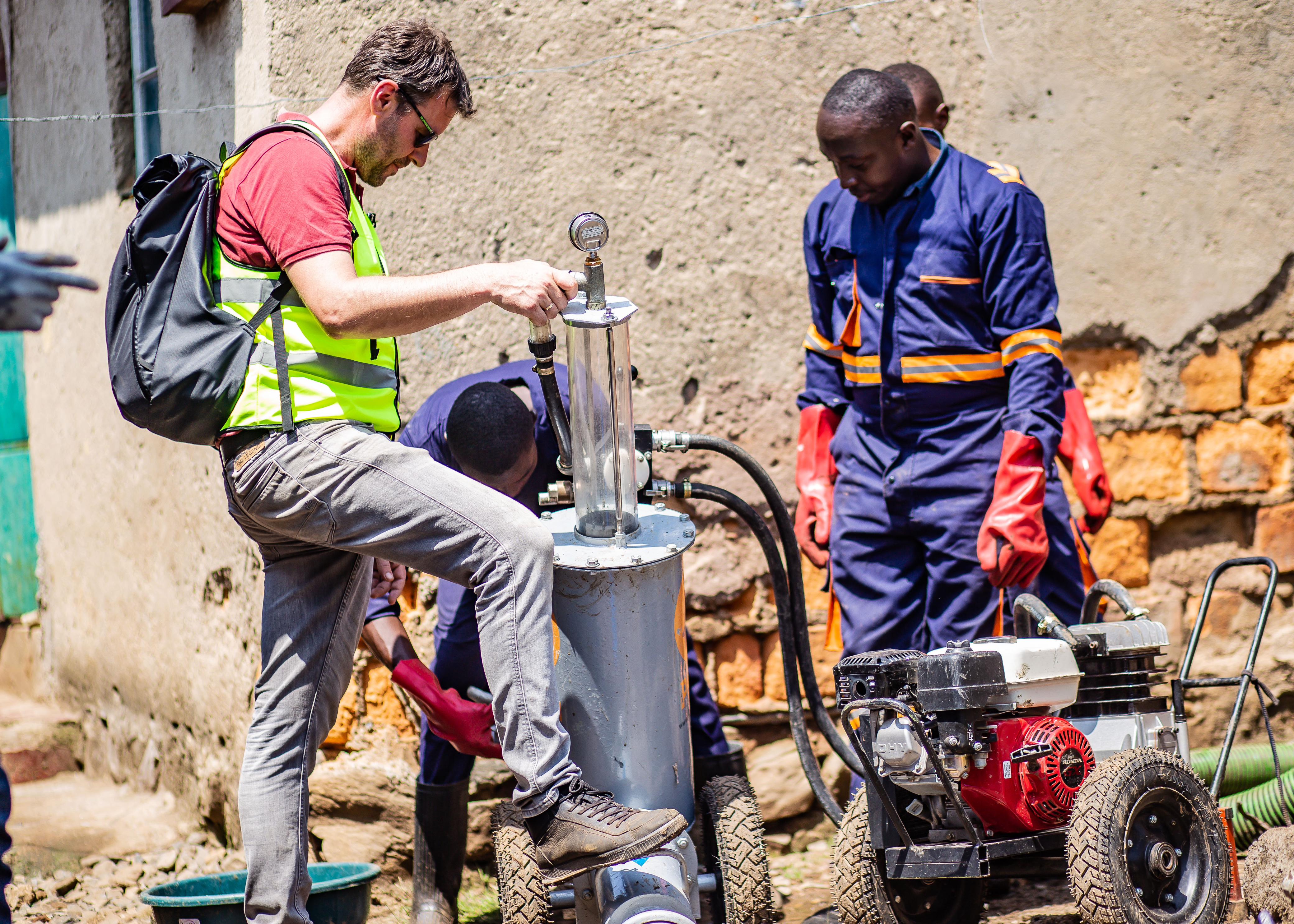
Testing and development of the Saniforce – A Fecal Sludge Treatment Unit for humanitarian settings
Lack of adequate sanitation is a common challenge for millions of refugees worldwide. Many settlements are not able to provide proper containment & treatment of human waste, a troubling situation for refugees who might remain displaced for decades. In most camps, sanitation is based on pit latrine use. Once the pit is full, waste removal & disposal services are needed and are similarly inadequate due to lack of infrastructure
This lack of infrastructure results in improper disposal and treatment of faecal sludge which in most cases is on open land. Estimates of disease burden highlight high levels of poor health and associated social burden among refugee populations, which are highly related to inadequate WASH facilities and lack of access to clean water.
Our innovation to help manage waste in such an environment is a Faecal Sludge Treatment Unit (FSTU) designed to contain and treat human waste safely. Collaborating with ETH Zurich, Sistema.bio & Veolia Foundation aided in piloting FSTU at our WASH technology hub in Kisumu, Kenya. The unit received waste from 10 service providers servicing pit latrines of about 500,000 people living in low-income settlements of Kisumu. At Least 750 people per day directly benefited from this technology per day as a result of their pits being emptied and the waste being safely contained and treated with this technology.
The unit safely contains human waste in a Sistema.bio anaerobic reactor where it is anaerobically treated producing biogas as an output. The effluent is then further treated through thermal disinfection by raising the effluent temperature to 65-75 degrees Celsius in a bid to sterilize the waste producing a nutrient-rich & pathogen-free product that is for safe release to the environment. The thermal treatment is powered by biogas from the first stage of treatment, and thus the FSTU is completely self-sustaining without the need for consumables (chemicals).
Extensive lab data gathered over 9 months showed complete pathogen removal at 60–70 degrees at a contact time of 15 minutes, this illustrated proof of concept.
Opero-Services team monitoring the anaerobic reactor
In 15 months of operating the pilot, we safely contained & treated 115m3 of faecal sludge from pit latrines in Kisumu & prevented the omission of 1600m3 of methane that would be generated from the decomposition of human waste in pits. The thermal disinfection process has proven to eliminate all pathogens in the slurry making it safe for disposal.
Detailed findings of this trial and the work have been documented in three thesis projects by ETH Zurich University students.
Next Phase
The next phase of the project will see the team deploy the solution in an actual humanitarian setting in Uganda. Through support from the World Food Programme Humanitarian Innovation Accelerator Programme & collaboration with the Uganda Red Cross Society,
The pilot unit in Uganda is expected to serve at least 1000 people daily by safely containing & treating up to 2m3 of fecal waste every day. Learnings from the installed pilot in a real humanitarian setting will be used to contribute to further design improvements to match humanitarian contexts.


